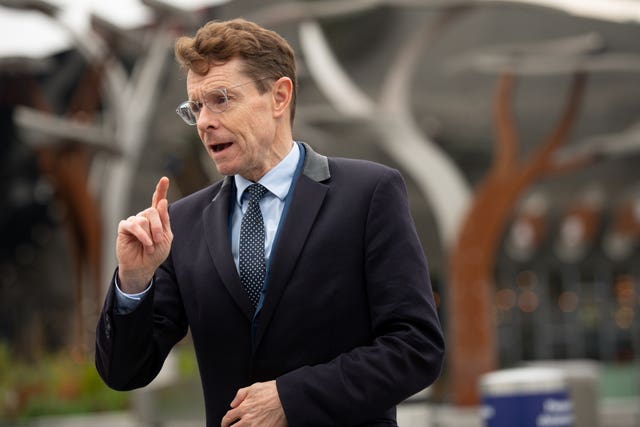Birmingham hospital trust ramps up Covid response to avoid being overwhelmed by third wave
Doctors are being redeployed to intensive care and elective procedures cut at England’s biggest hospital trust.

The largest NHS hospital trust in England is redeploying staff to critical care and standing down elective surgery in a bid to avoid being overwhelmed by a third wave of Covid cases.
The University Hospitals Birmingham NHS Trust (UHB) is boosting its intensive treatment unit (ITU) capacity to more than 250 beds, and will support capacity for 1,000 in-patients.
It currently has 125 Covid-positive patients in ITUs across its three main hospital sites; the Queen Elizabeth and Heartlands Hospitals, both in Birmingham, and Good Hope in Sutton Coldfield, West Midlands.
There are also another 873 in-patients being treated with coronavirus across those sites, while a fourth hospital at Solihull remains Covid-secure, treating those without the disease.
In a statement, the trust said “every member of staff will be supported” as it scales-up capacity “to treat the rising number of Covid-19 patients” and maintains care for other high-priority conditions, like cancer.
It comes after UHB consultant Peter Hewins told staff in a leaked memo, first reported in the Health Service Journal, of the sheer scale of the unprecedented challenge now facing frontline medics.
In the email, he said: “The trust position is one of extremis.
“We are at significant risk of becoming overwhelmed by Covid-19 patient[s] and specifically our ICUs are under immense pressure.”

The memo suggested total ITU capacity could be scaled up to look after as many as 280 patients – more than 200 at the main QE site alone – with doctors and staff deployed to intensive care from other departments, as soon as the end of the week.
Remarking that it was a “period of absolute emergency”, Mr Hewins said: “I appreciate this will represent a challenging experience for many but we have no other options…We must now stand together to face the full force of [the third] wave of the pandemic.”
Meanwhile, the trust has confirmed it has significantly more patients with Covid in its hospitals than it did during the first peak in April last year, with health bosses planning for numbers to continue rising for some time.
On Friday last week, the region’s health chiefs said the coming days would be “absolutely critical” for the NHS in the West Midlands with hospitals “struggling” under rising Covid variant case rates.
Health chiefs said “all indicators” were the new more highly contagious coronavirus variant had taken root in the region, and particularly in Wolverhampton, Sandwell and Birmingham.
Speaking at the time West Midlands’ Mayor Andy Street said: “The next seven days will be absolutely critical in this fight.
“The data only reflects people’s behaviour – that is mission critical to the outcome.”
Now chiefs at the Midlands’ biggest trust have moved to the next phase of response, by significantly and rapidly scaling-up treatment capacity.
All elective procedures will be stood down at the Queen Elizabeth Hospital, while Solihull’s elective surgery capacity and outpatient services will be reduced as staff are redeployed.
The move is aimed at delivering what trust chiefs have called “the greatest good for the greatest numbers of people”.
In a response for a comment on the leaked staff memo, a UHB spokesman said: “We continue to expand our intensive care and acute medical teams so they are able to treat the rising number of Covid-19 patients and those who require time-critical surgery including cancer operations.
“Every member of staff will be supported by the Trust in delivering the best care wherever they are working.”





